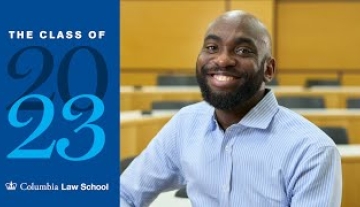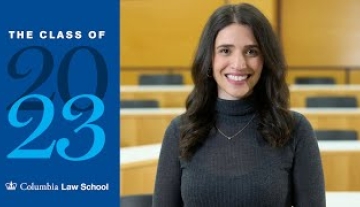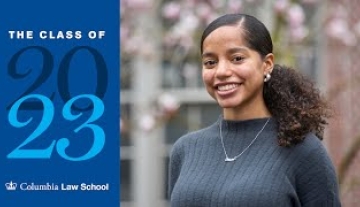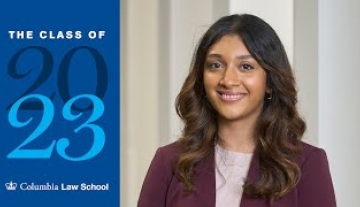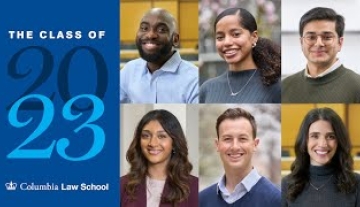Madhuri Belkale ’23: The Law Is Limitless
Belkale shares the importance of mentorship and how a career in public interest offers unique opportunities.
Hometown: Cedar Rapids, Iowa
Why Columbia Law: Madhuri Belkale has long been interested in doing immigration work—“My parents are immigrants, and that was a big part of why that part of the law interested me”—and the Immigrants’ Rights Clinic was a primary reason she chose to attend Columbia Law. “In the clinic, as a student, you work on asylum cases, so you represent an individual asylum seeker. . . . It was my first experience working with an individual client, and that’s something that I want to do with my career. So it was a really impactful moment.”
Favorite Aspect of Columbia Law: “It was really important to me to give back to this community as a mentor. . . . At the beginning of each school year, my mentees are very nervous about their first cold call. Before finals, they’re nervous about their first exam. And just helping them feel like, ‘You’ve got this, you can do this.’ My mentees mentor me, too. And so it’s really great when we kind of form a connection and are able to have a friendship that comes out of the mentorship.”
At Columbia Law: Teaching assistant, Immigrants’ Rights Clinic; 1L representative and board member, Empowering Women of Color; board member, South Asian Law Students Association; member, First Generation Professionals; member, Clerkships Diversity Initiative; teaching fellow, Bert Huang, Harold R. Medina Professor of Procedural Jurisprudence; research assistant, Kellen R. Funk, associate professor of law; Max Berger ’71 Public Interest/Public Service Fellow.
After Columbia Law: Beginning a yearlong fellowship at Cohen Milstein Sellers & Toll followed by a two-year clerkship at a Federal District Court in Virginia.
“As a law student, I’ve encountered different opportunities to have conversations with my peers on topics that we don’t agree about. I think really listening to the other person and hearing what they have to say is important, but also having respect and empathy for the background that they’re coming from and then using that empathy to communicate with them can be really meaningful in reaching either a shared understanding or a resolution.”

